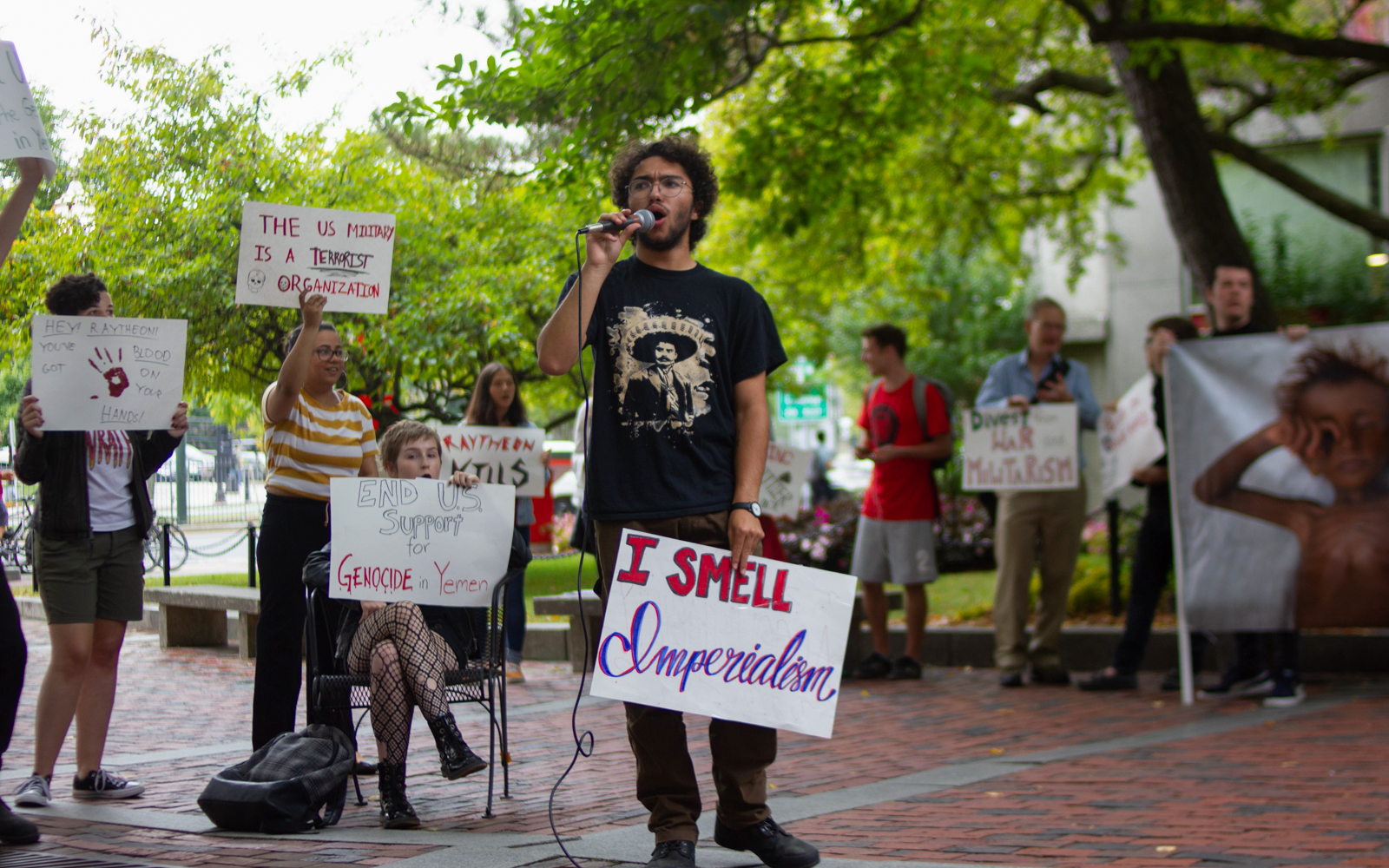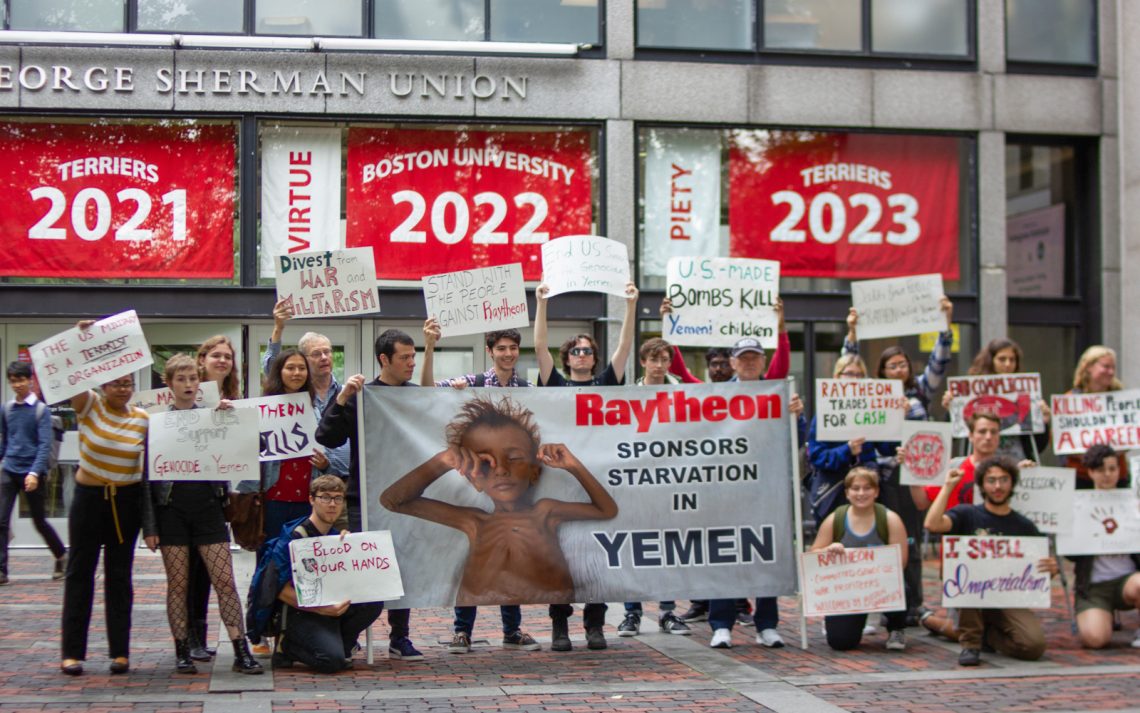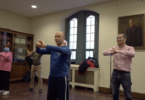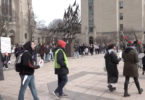By Anna Stjernquist
BU News Service
College students throughout the Boston area are protesting the presence of weapon manufacturers at university career fairs in an attempt to stop students from being recruited to work at companies they say are war profiteers.
Backed by the nonprofit organization Massachusetts Peace Action’s Anti-War Campaign, student coalitions held protests throughout the last three weeks against companies with vested interests in war-torn Yemen. Using university career fairs as their stage, student protesters said they want to draw attention to defense contractors such as Raytheon, and instill awareness among the students.
Student protests began Sept. 20 at the Massachusetts Institute of Technology as MIT Students Against War gathered for the first time this school year at MIT’s Fall Career Fair. On Wednesday, Boston University students rallied outside the George Sherman Union at BU, ahead of Northeastern University’s protests on Thursday.
Harishan Ganesan and Chance Charley, co-founders of Boston University Students Against Imperialism, agreed that students are drawn to these jobs because companies that profit from war often produce the highest paying jobs.
“It’s a sad reality because a lot of students don’t see another way out. It’s not their fault but just how society is built.” said Ganesan, a sophomore at BU. “While helping each other, we want to fight the system that creates these forms of oppression.”

Nevertheless, Ganesan said these protests have gained increasing support from students since the events first began in spring this year, with students becoming more in touch with these issues and wary of forces they don’t want “occupying their lives and hurting people around the world.”
The protests first started in February 2019, coinciding with a worsening humanitarian crisis in Yemen. Students rallied at MIT, BU, Tufts University and the University of Massachusetts Amherst. With support from regional activist organizations, students said they began to criticize universities developing and maintaining ties to war-profiteers.
Alonso Espinosa Dominguez, MIT math major and a member of MIT Students Against War, said MIT’s sponsorships and partnerships with military industrial complexes directly clashes with the university’s most recent initiative, the MIT Campaign for a Better World.
“It’s jarring for people to find out how, for example, research is funded and who gets access to what,” he said. “Even if students don’t agree with the career entity, the protests force them to think critically about socio-political powers and the work they will eventually be doing in the world.”
Brian Garvey, organizer at Massachusetts Peace Action, said their involvement is part of the Raytheon Anti-War Campaign, targeting Raytheon for being “one of the largest weapons manufacturers in the world.”
“We want to make sure that the students know the full picture – which is where those weapons are ending up,” he said.
Students said the universities have not yet responded to the protests. Colin Riley, executive director of the Media Relations Office at BU said that the university takes no issue with students protesting but will continue welcoming these companies.
“These are legal companies in the United States. We appreciate that there are businesses that want to recruit and offer great opportunities to our students and the people that want to protest are free to do so as well,” he said.
The MIT administration has not received the rallies entirely well, according to Alice Pote, software engineer at MIT Open Learning.
“Last year, the dean of student affairs came out to the protests and almost attacked someone,” she said. “Unsurprisingly, it turns out he received a massive amount of funding from Raytheon.”
MIT could not be reached despite multiple requests for comment.
“Raytheon and research institutions such as MIT Lincoln Labs are tied up in the war in Yemen — the worst humanitarian crisis on earth. And it’s a real disaster,” said Charley, a senior BU.
“Although many people understand the problems with these companies, there needs to be a more organized formation, especially amongst the students, and especially when universities are inviting these war profiteers to campus.”
A Raytheon spokesman declined to comment on the protests.






Raytheon just makes them. Everything leaving the country (especially weapons) has to be OKd by the Govt. First. Blame them.